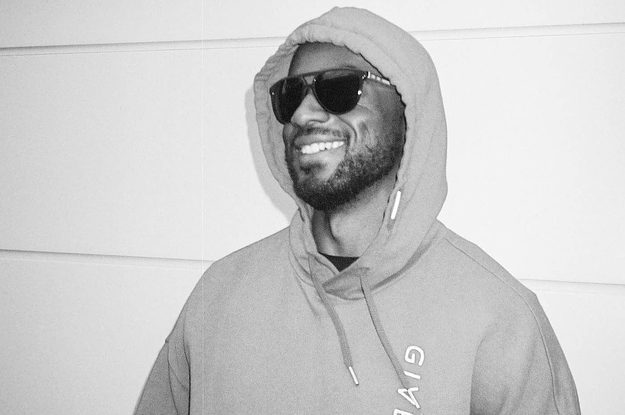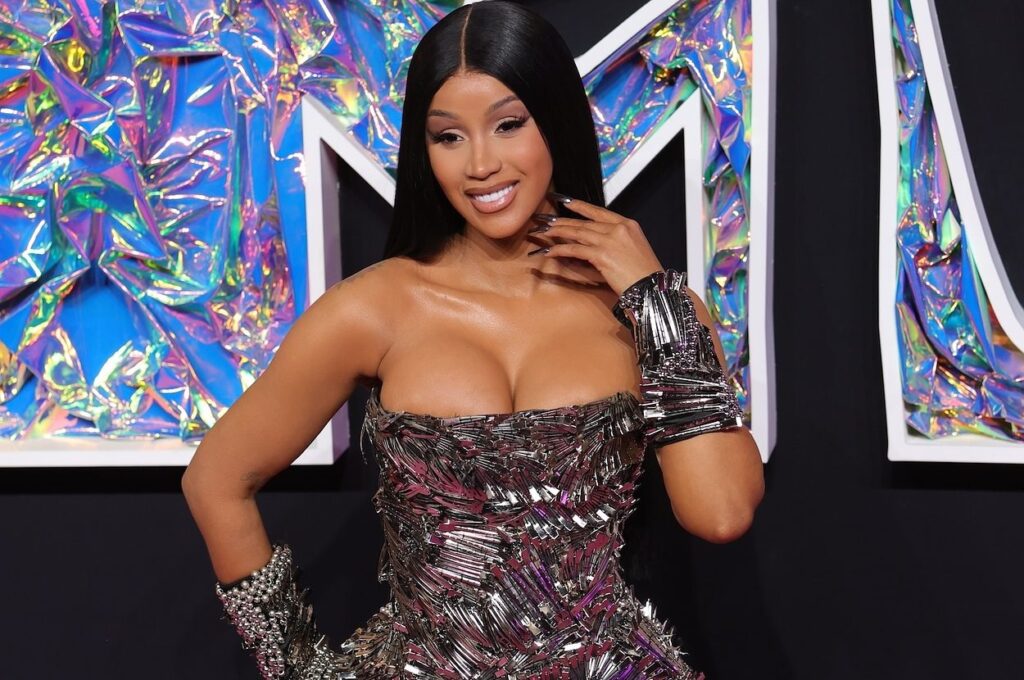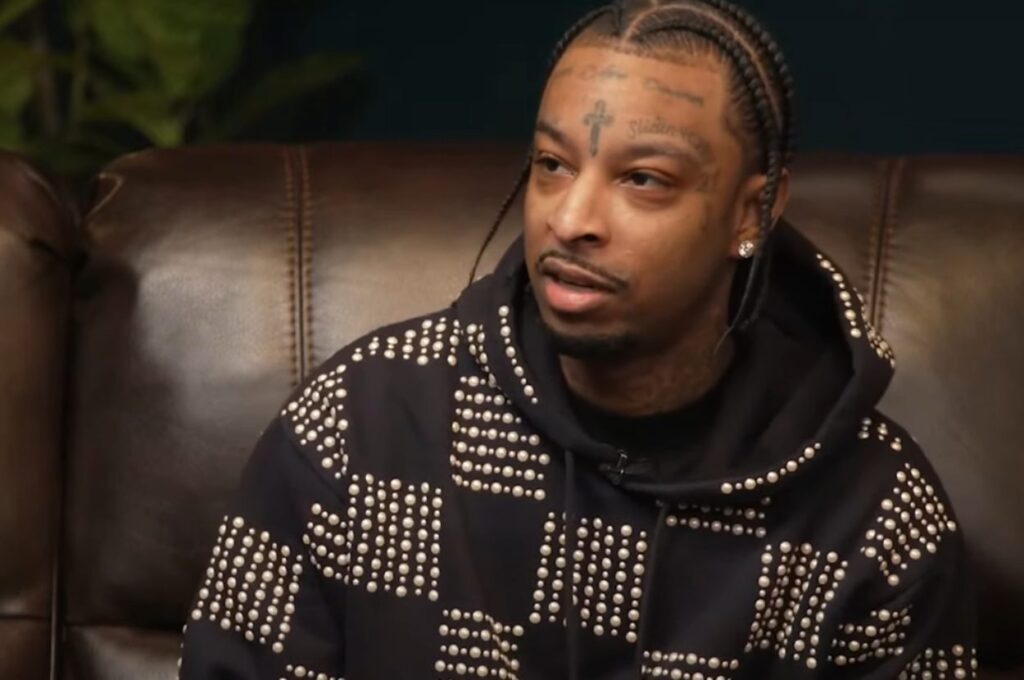
‘The People Own It Now—Not Me’: Super-Producer T2 On 16 Years Of “Heartbroken”
COMPLEX: In all the years we’ve been real-life mates, since our Leicester crew connected us back in ‘07—shouts out to Deadeye and Ebz—we’ve never thought to do an interview like this, but “Heartbroken” turning 16 definitely calls for it. How does it feel knowing your breakout hit has reached this milestone and is still having an impact all these years later?
T2: I mean, it’s amazing, but I have to go back because I think you might have forgotten our history, bro. Our first interview was for Dazed & Confused, probably 16 years ago as well. I’ve got a cut-out of the article somewhere on one of my computers. But, yeah, it’s just amazing. The way that people deal with that song makes me forget how old it is, because if we’re really talking about the age of the song, it’s like 18 years old.
Firstly, I forgot about that interview we did—you’ve got a good memory [laughs]. And I actually had a question later on about the track doing the rounds underground before it blew up overground. I can vividly remember hearing it being played, and wheeled-up, in Niche up in Sheffield before it came out commercially.
Yeah, it did the rounds underground almost the whole of 2007. I gave it to Sean ‘Banger’ Scott earlier that year, the finished version, for him to put in his mix CD. I think it came out on January 3rd on his promo CD, and off the back of that, it was just a snowball effect.
The song is pretty much a British national treasure at this point—you’ve got different generations of people who know it word for word. What do you think it is about “Heartbroken” that’s gripped the hearts of the nation?
To be honest with you, if I was able to replicate it, I’d have done it 100 times. The truth of the matter is, sometimes God just picks people or moments that stay near and dear to people. I can’t explain it at this point, but you know them type of songs—like Robin S’ “Show Me Love” or Montell Jordan’s “This Is How We Do It”—I just happen to have one of them. It was the coolest thing to hear on radio at the time. Everything British at that moment was a bit leave it, you know what I’m saying? But this was a cool sound that came through the underground and actually became a pop song, so it was like the coolest thing for everyone to indulge in. And don’t forget: this was before the streaming era. It was hard copies! We sold some units back then and, 16 years later, we’re streaming like crazy. It’s a catalogue record now where it just has a life of its own, where every year you can damn near predict how many records it will sell because it keeps going.
So it’s still selling like crazy today?
Let me say this: we’ve sold more records in the last 5 years than we sold in the first 10 years of “Heartbroken”. When you’ve got a song that people really love and can always go to—it’s a go-to record for when it’s time to have a good time—you get repeat plays when it comes to streaming. So that’s worked a lot in our favour. I’m grateful, man. Very grateful.
Take us back to that fateful night when you created the track. Set the scene for us.
First of all, we’ve gotta go back to how the record actually came about: it came about when I invited the talented Jodie Aysha to my house so we could make some music. I met Jodie through my friend Gavin’s sister, Rachel. And I met Gavin in high school; he moved from another school to my school in Year 10, and me and him just clicked. That was my dawg! And he would back a lot of the nonsense I was getting into [laughs]. Long story short, me and him became tight. He had a twin called Rachel, and Rachel and Jodie were best friends. One day, Gavin said to me: “Bro, my sister sings you know.” I was making beats even back then! So I made a beat and sent it to Rachel and got her and Jodie to write to it. I have to say this on record: Jodie’s pen at that tender age was out of this world. I was like, “What the hell!? This is sick.” They both recorded versions but Jodie’s stuck out more. I loved her vocal tone more and I loved her writing. I was 16 at the time, so this was in 2005.
At that point, I wasn’t really making bassline—I was producing R&B, hip-hop and grime, just being a hybrid producer. When you’re coming up as a producer, you just do anything because you never know what’s gonna work. Especially them times there—there were no proven sonics from the inner-cities up North that worked, aside from the garage era. But the garage era kinda went away at the time, and grime wasn’t really getting love on a commercial level. So the intention was to do an R&B record. That production I made, that’s what she sung over, but she only ended up doing one verse and a chorus. She never came back round to finish the rest of it because, obviously, with R&B records, you need backing vocals, you need ad-libs, you need all types of things. So that was that; we just left it there. The beat wasn’t finished—it was just a loop and it was just her parts over the beat—and we left it as that for probably a year or so. During that year, I was putting bassline out, but I was also living life on the wild side and some things caught up with me.
By the end of 2006, things started to bubble with the bassline stuff—my name was getting about because I was putting out a lot of music, but I was also getting into trouble for the things I was carrying on with before the music started bubbling. I was on trial and I needed to make a song before I went to court the next day because I thought, ‘I’m gonna get put away for a while, so let me feed the streets before I go.” Then I randomly remembered the vocals I had from the song me and Jodie half-finished. I said to myself, ‘Why don’t I just take those vocals and flip into a bassline tune?’ And because no one really heard it besides a few of my friends that came round to my house, I just went for it. So, it’s just after midnight and I’m at my computer… I had this thing about chopping vocals at the time, so I chopped the vocals first—the vocal chops everyone fell in love with, that was the first thing I did. And the way the record starts, especially if you have the extended version, just that little cool melody in the beginning, that’s all I had: a kick, kick-clack, that little—I call it pizzicato—string, and the vocal chops. I knew it was a madness from that very moment.
But I didn’t look at it like it was gonna be a hit because we didn’t really know what that looked like with this kind of sound. Especially being Black, from the inner-city, there was no formula like there is now, so you’re not sitting there thinking, “I’ve got a hit record.” You just know you’ve got something undeniable. So yeah, I finished the record and emailed it to Sean ‘Banger’ Scott the same day. Then, the next day, I went to court—but, luckily, the case got thrown out.


